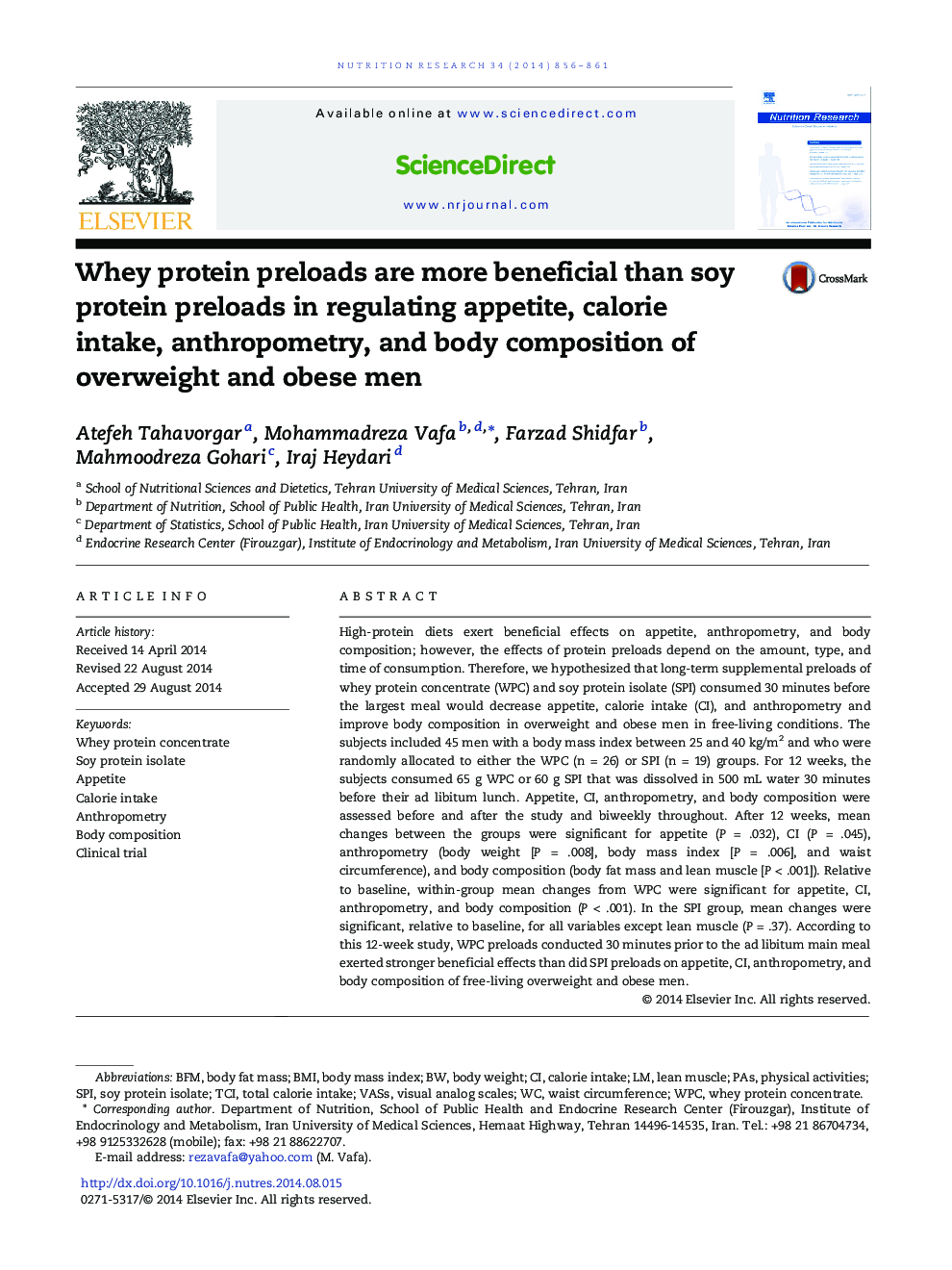| Article ID | Journal | Published Year | Pages | File Type |
|---|---|---|---|---|
| 5904371 | Nutrition Research | 2014 | 6 Pages |
High-protein diets exert beneficial effects on appetite, anthropometry, and body composition; however, the effects of protein preloads depend on the amount, type, and time of consumption. Therefore, we hypothesized that long-term supplemental preloads of whey protein concentrate (WPC) and soy protein isolate (SPI) consumed 30 minutes before the largest meal would decrease appetite, calorie intake (CI), and anthropometry and improve body composition in overweight and obese men in free-living conditions. The subjects included 45 men with a body mass index between 25 and 40 kg/m2 and who were randomly allocated to either the WPC (n = 26) or SPI (n = 19) groups. For 12 weeks, the subjects consumed 65 g WPC or 60 g SPI that was dissolved in 500 mL water 30 minutes before their ad libitum lunch. Appetite, CI, anthropometry, and body composition were assessed before and after the study and biweekly throughout. After 12 weeks, mean changes between the groups were significant for appetite (P = .032), CI (P = .045), anthropometry (body weight [P = .008], body mass index [P = .006], and waist circumference), and body composition (body fat mass and lean muscle [P < .001]). Relative to baseline, within-group mean changes from WPC were significant for appetite, CI, anthropometry, and body composition (P < .001). In the SPI group, mean changes were significant, relative to baseline, for all variables except lean muscle (P = .37). According to this 12-week study, WPC preloads conducted 30 minutes prior to the ad libitum main meal exerted stronger beneficial effects than did SPI preloads on appetite, CI, anthropometry, and body composition of free-living overweight and obese men.
